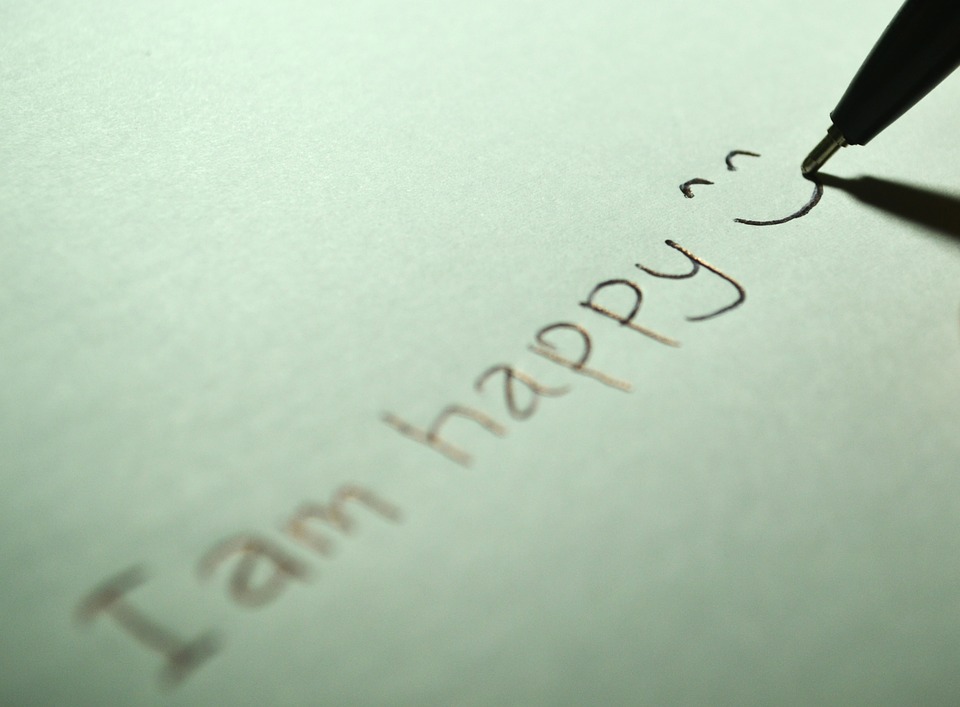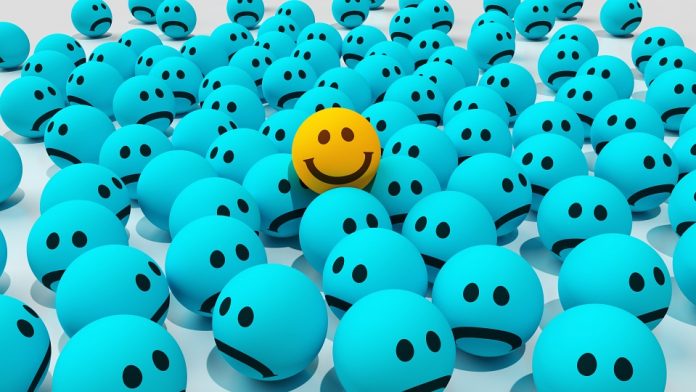What exactly makes us happy?
The most recognised definition, and it's one favoured by psychiatrists, neuroscientists, psychologists, and Buddhist monks—is more like being satisfied or content rather than "happy" as in a delirious sort of way.
It has depth and deliberation to it. It encompasses living a meaningful life, utilizing your gifts and time aswell as living purposefully. The feeling of happiness is increased when you feel part of a community. It involves a willingness to learn and stretch and grow, which sometimes involves discomfort. It requires acting on life, not merely being an observer. It's not joy, a temporary exhilaration, or even pleasure, that sensual rush.
In recent years there has been real progress in understanding the concept of happiness and how we can achieve it. Here are the findings, that jump out from recent research.
Some People Are Simply Born Happy
Some lucky people are just born with a brighter outlook on life than others. They simply see beauty and opportunity all around failing to consider flaws or dangers.
Our lives and where we are right now are the result of all the thoughts we had since birth up until now. So those of us who developed a more ominous orientation can consciously cultivate optimism. Expect the best from life and you will receive the very best. Life doesn’t care whether you are a pessimist or an optimist, whether you focus on the good or the bad. Life will treat you exactly the way you expect to be treated and if that’s the case then you should definitely start cultivating your optimism. Engaging in positive internal dialogue is seen as a mark of being mentally healthy.
 Getting What You Want Doesn't Bring Lasting Happiness
Getting What You Want Doesn't Bring Lasting Happiness
You might think that happiness would arrive if you won the lottery, or be gone forever if your house were destroyed by fire. But human beings are remarkably adaptable. After a period of mental adjustment, we bounce right back to our previous level of happiness, no matter what happens to us. (There are some scientifically proven exceptions, notably suffering the unexpected loss of a job or the loss of a spouse. Both events tend to permanently knock people down a notch.)
Our ability to adapt works in two directions. Because we are so adaptable, we quickly get used to many of the accomplishments we strive for in life, such as landing the big job or getting married. Soon after we reach a milestone, we start to feel that something is missing. We begin coveting another worldly possession or eyeing a social advancement. But such an approach keeps us tethered to the "hedonic treadmill," where happiness is always just out of reach, one toy or one notch away. It's possible to get off the treadmill entirely, by focusing on activities that are dynamic, surprising, and attention-absorbing, and thus less likely to bore us than, say, acquiring shiny stuff.
Pain Is a Part of Happiness
Happiness is not the reward for escaping pain. It demands that you confront negative feelings head-on, without letting them overwhelm you. Russ Harris, author of The Happiness Trap, calls some popular conceptions of happiness dangerous because they set people up for a "struggle against reality." They don't take into account that real-life is full of disappointments, loss, and inconveniences. "If you're going to live a rich and fulfilling life, then you're going to feel the full range of emotions." Harris says. Happiness would be meaningless if not for sadness: Without the contrast of darkness, there is no light.
Mindfulness Brings Happiness
Mindfulness, is a powerful tool for experiencing happiness when practiced regularly. If you bring mindfulness to bear on negative feelings, they lose their impact. Just let them be there without struggling against them, and you'll eventually feel less anxiety and depression. Don't banish your negative feelings all together, but don't let them get in the way of your taking actions, either.
Commitment to Your Goals
For the pursuit of happiness, you have to have goals. Know what it is that you really want out of life, ask for it and trust that in the end you will receive it. Make sure you set different kinds of goals, personal goals, career goals, adventure goals, contribution goals. By doing so you will gain a sense of direction, security and trust in your life.
"If you want to live a happy life, tie it to a goal, not to people or things.”
Albert Einstein
And it's not about crossing the finish line that is most rewarding; it's about the journey, it's in anticipating achieving your goal. The neuroscientist Richard Davidson from Wisconsin has found that working hard towards a goal, and making progress to the point of expecting a goal to be realised, doesn't just activate positive feelings—it also suppresses negative emotions such as fear and depression.
Yes, Money Buys Happiness
Money does buy happiness, but only up to the point where it enables you to live comfortably. Beyond that, more cash doesn't boost your wellbeing. According to a recent study focusing on how people evaluate their happiness, the tipping point is a salary of £70,000 a year after which people's day-to-day happiness no longer improves.
Avoid Comparison
When we are keeping up with the Joneses—a nagging thought known as status anxiety—affects how happy we are. Some are more obsessed with status than others, but we're all attuned to comparing life relative to those around us. To stop status worries from gnawing at your happiness, choose your peer group carefully, spend your time and energy improving yourself and your life and you will no longer feel the need to compete and compare yourself with others.
Taking Good Care of Your Body
Your body is your temple and the way you feel internally will reflect externally. Exercise whenever possible and drink plenty of water- water is life, and eat as healthy as possible.
“Take care of your body. It’s the only place you have to live.” ~ Jim Rohn
Happiness Is Other People
Positive psychologist professor Chris Peterson, says the best piece of advice to come out of his field, is to make strong personal relationships the priority. Good relationships can buffer you against the damaging effects of all life's inevitable setbacks. Go out and meet new people, socialize, get interested in what others are doing and they will automatically be interested in what you are doing aswell.
Do Your Happiness Homework
Becoming happier takes work, but it may be the most rewarding and fun work you'll ever do. You can increase positive feelings by incorporating a few proven practices into your routine. Work with your unique gifts and talents, work with your passions, manage your weaknesses and cultivate your strengths and by doing so you will increase the flow experiences and become more happy.
Everyone has unique gifts and talents. What you love is what you’re gifted at. To be completely happy, to live a completely fulfilled life, you have to do what you love.
Happiness Is, Embracing Your Natural Coping Style
Not everyone can put on a happy face. Professor of psychology Barbara Held, advises against "the tyranny of the positive attitude." "Looking on the bright side isn't possible for everyone and can even be counterproductive," she insists. "When you put pressure on someone to cope in a way that doesn't fit them, it not only doesn't work, it makes them feel like a failure in addition to already feeling bad."
Work on developing strategies for coping by observing your thoughts and playing with your mind. Be the lab scientist and not the rat. There are times in everyone’s life when something constructive is born out of adversity… when things seem so bad that you’ve got to grab your fate by the shoulders and shake it.
Living Your Values Promotes Real Happiness
If you aren't living according to your values, you won't be happy, no matter how much you are achieving. Some people, however, aren't even sure what their values are. If you're one of them, Here is a great question for you: "Imagine I could wave a magic wand to ensure that you would have the approval and admiration of everyone on the planet, forever. What, in that case, would you choose to do with your life?"
Once you've answered this honestly, you can start taking steps towards your ideal vision of yourself. You can tape positive affirmations to your mirror, or you can cut up your advice books and turn them into a papier-mâché project. It doesn't matter, as long as you're living consciously. The state of happiness is not really a state at all. It's an ongoing personal experiment.













